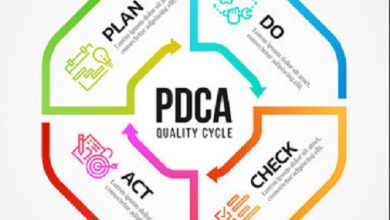Positive psychology definition/origin/purpose/Advantages/Criticism
The definition of Positive Psychology offers good practices to improve performance and increase a sense of personal well-being.
Therefore, it is among the tools used inside and outside psychologists’ offices, reaching consultancies, coaching processes and other types of training.
Applied to the professional area, this discipline contributes to more collaborative teams , inspiring leaders and more satisfied employees.
Interested in the benefits of Positive Psychology?
So, continue reading this article to learn about the origins, importance and how to use this concept in your day to day work.
What Is Positive Psychology?
The definition of Positive Psychology is a field of study within Psychology that focuses on the elements that can bring people happiness .
Thus, instead of prioritizing the identification of deviations or mental pathologies, the segment focuses on the maintenance and reinforcement of the patient’s well-being.
This does not mean putting diseases aside, but rather focusing on positive aspects of human existence.
Based on this premise, Positive Psychology employs tools such as self-responsibility to show that everyone has the power to change their reality.
According to this movement, the secret to leading a more satisfying life is to build an optimistic mental model, which always sees the “glass half full”.
To do so, it is necessary to train the brain and leave negative patterns aside, often exercising gratitude and resilience mechanisms.
Gratitude serves to remind us that we always have reasons to be grateful , even if they seem small in the face of a large scenario.
Resilience plays a critical role in converting difficult situations into sources of learning, highlighting important lessons for personal and professional growth.
What Is Happiness For Positive Psychology?
In the field of Positive Psychology, happiness was called subjective well-being , since the elements that make up this state are different from person to person.
According to the expert considered the father of this field of study, Martin Seligman , subjective well-being is defined by the absence of depression and the presence of cognitive states and positive emotions.
In other words, we can consider that happiness is a state of fullness in which body and mind are healthy, taking into account that, for the World Health Organization :
“ Health is a state of complete physical, mental and social well-being and not merely the absence of infirmity ”.
Thinking of a way to assess and measure happiness , Seligman chose five main factors
1-Positive Emotion
Happiness or well-being depends on what we feel about ourselves, achievements, successes and our moment in life , do you agree?
Therefore, maintaining positive emotional states is crucial to being happy.
In addition to feelings themselves, this factor refers to thoughts , as they are behind emotions – whether positive or negative.
Notice that, after a nightmare, we wake up feeling bad, afraid, angry, worried, etc.
The same reasoning applies to good dreams, which provoke positive emotions, as both are creations of our mind – or, thoughts.
Hence the importance of training the brain to take the lead in the emotional area, manipulating internal triggers to provoke well-being.
If you enjoy waking up and having a cup of coffee, for example, it’s helpful to do this every morning to improve your thoughts and, consequently, your feelings.
2-Engagement
Like positive emotions, this is a subjective factor, which depends on internal motivation and self-responsibility.
Engagement can be described as the level of involvement with activities , especially those that are part of the routine.
When we are optimistic and have a greater objective to carry out our tasks, the tendency is that they stop being common and become special, since they are steps that will lead us to a desired goal.
3-Meaning In Life
This factor has a subjective and objective nature, after all, what motivates us is usually a mixture of needs, dreams and beliefs.
Whatever these reasons, they need to exist to give us the energy we need to pursue complete well-being.
Otherwise, we will be lost and it will be extremely difficult to overcome crises or face stressful situations.
At high levels, the lack of meaning in life (or even in daily tasks) can contribute to mental illness, favoring the development of ailments such as depression.
4-Positive Achievement
Taking meaning in life as a basis, it is possible to carry out activities in a more conscious way, enjoying every moment.
Positive achievement also supports efficient planning , in which unnecessary tasks are eliminated and energy is spent on those that really contribute to one’s goals.
That way, instead of wasting time on unproductive actions like checking email or social media every minute, we can focus on what’s important.
5-Positive Relationships
It concerns the way we relate to other people, which should also prioritize positive aspects.
Positive relationships already start with choosing the people who will be around.
It’s worth surrounding yourself with those who give us strength, help us improve our qualities and correct our flaws.
How Did Positive Psychology Come About?
Most records indicate that the movement was born between 1997 and 1998 , when studies by psychologist Martin Seligman began to be disseminated around the world.
This happened as soon as Seligman assumed the presidency of the American Psychological Association (APA), which has representation inside and outside the United States.
On the occasion, other renowned institutions supported Positive Psychology: National Institute of Mental Health, National Science Foundation, Templeton Foundation, Robert Wood Johnson Foundation, Atlantic Philanthropies and MacArthur Foundation.
From quantitative research, Seligman and other scholars began to investigate what is behind well-being or happiness, focusing on positive aspects of human existence, such as virtues .
Thus, the development and improvement of positive qualities became part of the movement.
There are, however, those who disagree and say that Positive Psychology emerged before the 1990s, having been approached by Humanistic Psychology .
According to the book “ Assessment in Positive Psychology ”, the idea of emphasizing the virtues of the human being, making them one of the priorities of Psychology, was present in the work of specialists such as Abraham Maslow .
This psychologist is one of the great representatives of Humanistic Psychology, having created the Theory of Human Needs .
In 1954, the author released the book “Motivation and Personality”, which contained a chapter dedicated to a positive view on the part of Psychology.
At the time, Maslow stated that, by focusing on the identification of diseases, this science was limited to only half of its jurisdiction, which must contemplate the good and the bad sides of the human being.
Who Is Martin Seligman?
Martin Seligman is a psychologist and professor at the University of Pennsylvania, in the United States, with more than 30 years of clinical practice.
He became known as the creator of Positive Psychology, thanks to the launch of research and content such as the article “ Positive Psychology: an introduction ”.
Written in partnership with Hungarian psychologist Mihaly Csikszentmihalyi , the article is one of the milestones in the history of Positive Psychology, as it cites the need for an approach centered on human virtues .
After conducting several experiments and teaching psychopathology, Seligman had some experiences that changed his perspective.
One of them occurred with his own daughter, whom the specialist once shouted at when they were in a garden.
The girl was naturally sensitive, and used to cry at her father’s scolding. But at the age of five, she decided not to cry anymore.
Then the girl questioned Seligman, saying that if she was successful in changing her posture , he might as well stop complaining so much.
This little episode made the psychologist notice that, in order to educate a child, it was necessary to go beyond correction and emphasize his qualities.
Expanding this reflection, came the idea that Psychology should not only deal with the negative side of the human mind.
Based on research and scientific knowledge, it must provide the reinforcement of qualities , without neglecting the cure and relief of diseases.
What Is The Purpose Of Positive Psychology?
“Well-being can’t just exist in your head: it’s a combination of feeling good and actually having meaning, good relationships and fulfillment. The way we choose our life path is by maximizing all five of these elements.”
The above excerpt, taken from the book “ Flowering: A New Understanding of the Nature of Happiness and Well-being ” by Martin Seligman, summarizes the purpose of Positive Psychology.
In a simple way, we can say that it is to achieve subjective well-being or, as we explained above, happiness.
So, to be happy most of the time, this concept suggests that while we all experience difficult situations, the focus should be on building:
- positive emotion
- engagement
- meaning in life
- positive achievement
- Positive interpersonal relationships.
How Does Positive Psychology Work?
This discipline works from the construction and improvement of qualities , focusing on a positive perspective to keep the mind healthy.
Its practice consists of recognizing and exercising emotions, individual characteristics and positive institutions – the three pillars for achieving a fuller life.
The exercise of emotions (or emotional experiences) focuses on experiencing good feelings, such as joy and hope.
The second pillar, individual characteristics, is one of the most worked on by Positive Psychology, whether to reinforce or develop an optimistic, altruistic, resilient vision, etc.
The pillar of institutions, on the other hand, can be adapted to improve people’s quality of life , as long as they choose and maintain healthy and pleasurable activities in their circle of acquaintances.
What Is The Importance Of Positive Psychology?
Positive Psychology has played an extremely important role in today’s world, as it works with a focus on promoting mental health .
Several scientific researches relate mental well-being to disease prevention, since negative emotional states can contribute to the development or aggravation of pathologies.
Depression, considered the evil of the 21st century, has a strong influence on these factors, but even physical illnesses are related to pessimism, hatred, hurt, among other harmful emotional states.
In addition to promoting satisfaction and optimism, Positive Psychology suggests the adoption of healthier behaviors, reinforcing the prevention of pathologies related to conduct.
Thus, those who adhere to the movement are less likely to develop risk factors for diabetes and cardiovascular diseases, for example, because they eat a balanced diet and practice physical activity.
Advantages Of Using Positive Psychology
Positive Psychology provides greater satisfaction and happiness in life, providing motivation and energy to achieve goals. According to the book “ Authentic Happiness ”, published by Seligman in 2002, whoever achieves this authentic happiness:
- Feels and can express gratitude
- Is optimistic about the future
- He does not compare himself with other people, as he recognizes that he is a unique being
- Practice kindness and courtesy, adopting an altruistic posture
- Dedicates a lot of time to family and friends
- Becomes resilient, learning to face and overcome adversity
- Learn to forgive sincerely
- Seek improvement and total dedication to the task they perform at the moment, enjoying the here and now
- Enjoy the pleasures of life
- Is committed to your goals and dreams
- Develops spirituality by focusing on self-knowledge and a higher motive for your tasks
- Take good care of your health, both mental and physical.
Criticism Of Positive Psychology
By investigating the bases for contentment, this field of study can be confused with self-help theories, which have no scientific basis .
A simple search on the internet shows content that relates Positive Psychology to the documentary “The Secret”, for example, which gathers personal reports to affirm the existence of a law of attraction.
For the characters in the documentary, this law would be an age-old key to success in all areas of life .
However, Positive Psychology does not allude to this content, nor should it be understood as a new guise for positive thinking.
It starts from research and scientific methods to highlight the positive aspects that cause well-being, and propose techniques for their use.
How To Apply Positive Psychology At Work?
At work, it is interesting to apply one of the concepts that make up Positive Psychology, known as the happiness triad .
This is one of the main techniques for applying the discipline, which preaches the search for a pleasant life, an engaged life and a meaningful life.
The pleasurable life describes the search for positive emotional states .
It does not necessarily mean reducing negative emotions, as they are often automatic responses to adverse situations.
As Helder Kamei, psychologist and master coach explains , a pleasant life at work translates into a positive organizational climate, in which feelings of well-being prevail.
In this sense, it is necessary to abandon practices that increase pressure, stress, fear, insecurity and discouragement.
Having an engaged life refers to the activities performed, which should lead to a state of fullness and concentration (or, flow), which can be achieved through activities that offer motivation.
The third path of the happiness triad, meaningful life, can be achieved by discovering a purpose and aligning it to work.
Besides earning money and occupying your time, what’s the point of working? How does this activity contribute to the good of your family, clients and society?
Applying the tripod concept of happiness, work can become a daily source of pleasure and fulfillment.
How Does Positive Psychology Help Companies?
Organizations that invest in this discipline build an environment favorable to innovation , self-development and talent retention .
Leaving aside rigid rules and impractical goals, organizations make room for their employees to think “outside the box” and find new ways to solve problems .
That’s how innovations come about.
Self- development , on the other hand , comes from the awareness that everyone has great responsibility for their behavior and the results of their work.
The optimistic attitude, encouraged by Positive Psychology, teaches that every action matters, and that skills can be acquired or improved.
By investing in self-knowledge and self-responsibility, employees start to make more assertive decisions and get along better with colleagues, raising the level of collaboration – and often, individual and team performance.
Likewise, Positive Psychology improves the organizational climate , a critical factor for retaining talent.
After all, high performance professionals are often sought after in the market, being able to choose companies in which they feel good.
Focusing on positive aspects also helps to promote a healthy environment , contributing to the prevention of illness, absenteeism, drops in productivity and rework.
We hope you have got the definition of Positive Psychology




